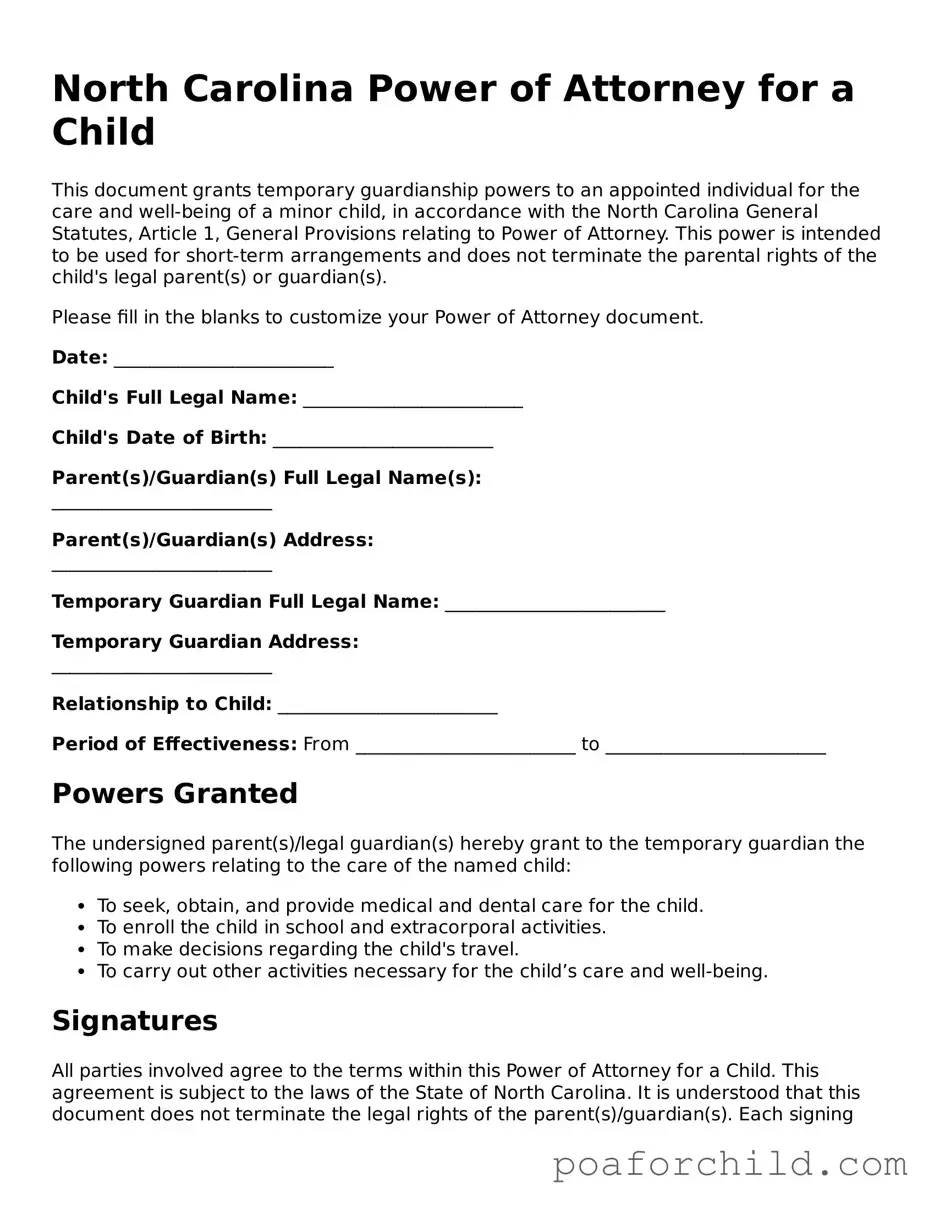Detailed Guide for Using North Carolina Power of Attorney for a Child
Creating a Power of Attorney (POA) for a child in North Carolina is a legal process that allows a parent or guardian to grant authority to another adult to make decisions on behalf of their child. This document is particularly useful if a parent or guardian will be unavailable to care for the child for a certain period due to reasons such as travel, illness, or military deployment. Getting started with this document requires careful attention to detail and an understanding of the responsibilities being assigned to the designated agent.
To fill out a North Carolina Power of Attorney for a Child form, follow these steps:
- Gather necessary information, including the full legal names and addresses of the parent(s) or current legal guardian(s), the person who will be granted Power of Attorney, and the child or children involved.
- Read the form thoroughly to understand all the sections and the type of decisions you are authorizing the agent to make on behalf of your child. These can range from educational to health-related decisions.
- Enter the date of when the document will become effective at the top of the form.
- Fill in the child’s name, birth date, and address in the designated section.
- Provide the name and contact information of the individual who is being granted the Power of Attorney.
- Detail any specific powers you are granting or restrictions you wish to apply. Be clear about what the agent can and cannot do with this authority.
- If the form allows, specify any time period for which the Power of Attorney will be valid. North Carolina law limits the duration to no more than one year unless otherwise specified.
- Have all parties involved sign and date the form in the presence of a notary public. This may include the parent(s), guardian(s), and the person being granted Power of Attorney.
- Ensure the form is properly notarized. This involves having the notary public officially seal and sign the document, indicating that all signatures are valid.
- Keep copies of the notarized POA form for your records and provide a copy to the person granted Power of Attorney. It’s also wise to give copies to relevant entities such as your child’s school or healthcare provider.
Once the North Carolina Power of Attorney for a Child form is completed and notarized, the person you've designated will have the authority to make decisions for your child within the scope you've specified. It’s important to communicate clearly with the chosen agent, ensuring they understand their responsibilities and the needs of your child. Regular reviews and updates to the agreement can help address any changes in circumstances or needs.
